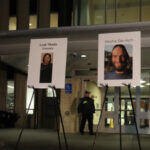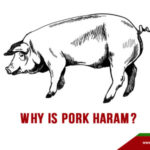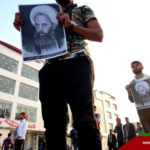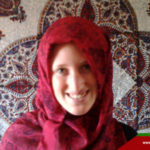by Fahad Hasnain
Unbeknownst to many, the ontological foundation of modern science is a far departure from how intellectuals in the ancient world practiced the discipline. With the dominance of modern, secular thought in nearly all aspects of life, the previous adoration and respect for metaphysical reality, as understood by all religious traditions, has been relegated to the fringes. Modern science has suffered no less from this transformation. An exploration into the contributions of medieval Islamic intellectuals shows not only the existence of an unrivaled scientific tradition, but also the effectiveness of the Islamic paradigm as means to practice science.
Contemporary discussions on science and religion always end up asking the question : Are science and religion in conflict? This question is usually brought up in one shape or another. A preeminent scientist like Steven Weinberg, who not only openly expresses his distaste for religion, but also questions the compatibility of science and religion, in many ways expresses that mainstream narrative of modern day science. Of course, there are exceptions; scientists who not only see no contradiction between science and the pursuit toward understanding God, but who are also devout practitioners of their faith – Francis Collins, the world-renowned geneticist who worked on the Human Genome Project is one such example.
Yet still, a Steven Weinberg comes to mind first when thinking of modern science – and this is not due to error – since the modern understanding of science posits indifference toward religion, if not outright hostility. For the hostile party, a Richard Dawkins for instance, who would say that the fundamental irrationality of religion render it unfit for conciliation with science, and who would also say that the discipline of science offers, if not confirmation of an atheistic world, then at the very least, a refutation of the fundamental claims of religion. His type of thinking is indeed present amongst many scientists. Another view, represented best by the late Stephen Jay Gould, proposes a “non-overlapping magisteria,” which means that science and religion occupy separate domains. In this view, science is agnostic toward the claims of the metaphysical, since it’s domain is confined to the natural world.
Regardless of this on-going debate amongst scientists, what is clear is that religion is not considered a serious ontological foundation through which science can be practiced. Such a thing would be discarded almost immediately. Yet, there was indeed a time when this was exactly how science was practiced, and it was practiced, undoubtedly, in the conclusions of nearly everyone that has studied it, exceptionally well. Science under the auspicious of medieval Islam, to reiterate, found a comfortable home, perhaps found only before in the halls of Athens and Alexandria.
Science, as practiced by Muslim scientists such as Ibn Sina or Nasr Al-Din Tusi, was done so with the same underlying perspective as the poetry of the great Sufi mystic, Jalal Ud Din Rumi. For when he said, “In truth, everything and everyone is a shadow of the Beloved(God),” he found a ideological partner amongst a Muslim astronomer or physicist. A deep, transcendent Sacredness was applied to the material world, which was seen as a sanctuary created by an infinitely merciful God. That science flourished under such circumstances may indeed be astonishing to the modern reader, but as Syed Hossein Nasr would argue, that indicates not a flaw within the approach of the medieval world, but rather a short-coming within modern man himself, who unknowingly stands far outside his spiritual dimension – a reality embraced amongst the ancients. Frithjof Schuon would similarly say that man has lost his perfume of the Sacred, hence the error in perspective.
Science, to the medieval Islamic scientist, was indeed a Sacred discipline; a tool through which the creation of God could be understood and appreciated. Rational knowledge led to the embrace of Divine Unity. Scientists practiced their discipline not as a end in itself, but instead as a means of better comprehending God’s creation. Their efforts at scientific advancement were motivated by religious injunctions urging self-reflection, such as this Qur’anic passage, “And he has subjected to you what is in the heavens and what is in the earth, all together, from Him. Surely in that are signs for a people who reflect (45:13).” Understanding through science was a means of become closer to the Divine, just as a gnostic would through worship in solitude. It’s no wonder then, that many, if not all of the great Muslim scientists were gnostics as much as they were scientists.
To quote Syed Hossein Nasr once again, medieval Muslim intellectuals saw the universe from the following perspective:
“Viewed as a text, Nature is a fabric of symbols, which must be read according to their meaning. The Qur’an is the counterpart of that text in human words; its verses are called ayaat (“signs”), just as are the phenomena of Nature. Both Nature and the Qur’an speak forth the presence and the worship of God. “We shall show them our portents on the horizon and within themselves until it will be manifest unto them that it is the truth (41:53).”
The very same sentiment is reflected in this short poem by the great mystic Sheikh Mahmud Shabistari,
“To him whose spirit is enlightened
The entire universe is a sacred book of the Most High;
Every sphere of universe is a different chapter;
One is the Opening Surah, and another the Surah of Ikhlas.”
This fundamentally Qur’anic perspective was the basis through which Muslim intellectuals practiced their craft.
Which brings us to another key feature of Muslim intellectuals during the medieval era: the pursuit of holistic knowledge. To pursue one branch of knowledge beyond it’s ascribed limits was to seen as destroying the harmony and proper order of things. To be a specialist was to risk falling into error; it was to forfeit higher knowledge of the transcendent. The whole of knowledge was always given greater precedence over specialization in a specific field. Hence, Ibn Sina, aside from his superb exposition of the medical sciences, was a philosopher and theologian par excellence.
Of course, like all great civilizations that preceded it, knowledge under Islamic civilization was not developed in a vacuum. Knowledge is held in great esteem within Islam, with countless Qur’anic passages and sayings of the Muhammad, may God’s peace and blessings be upon him, inviting Muslims to seek knowledge. For instance, a prophetic tradition states, “Anyone who pursues a course of acquisition of knowledge, God will ease his eventual access to paradise.” Another tradition says, “The most learned of men is one who collects bits of knowledge from others and thus enhances his own knowledge.” And the often quoted Prophetic saying, “Seek knowledge by even going to China,” offers a foundation through which a devout believer can pursue knowledge, and see it as an expression of his love for God.
In many ways, the intellectual openness of Islam and the blossoming of knowledge, which included empirical science, was founded up on these very edicts of Muhammad, may God’s peace and blessings be upon him, as not long after his demise did Muslims travel far and wide to acquire knowledge from the Greeks, the Persians, the Indians, and of course the Chinese. Indeed, it is because of the aforementioned religious injunctions, that Muslims were able to embrace the intellectual legacies of these past civilizations, without much fear of backlash or fear of falling into misguidance. These legacies were consequently used to create a uniquely Islamic intellectual foundation.
The result of this intellectual foundation were men like Ishaq Al Kindi, considered the first of the Muslim philosopher-scientists, who’s work is greatly respected not only amongst Muslims, but also amongst the western world. Or Muhammad Ibn Musa Al-Khwarazmi, who created Algebra, originally known as Al-Jabr wa’l-muqabalat. He introduced Indian numerals, and through his work on arithmetic, the West found out about “Arabic” numerals. Or the aforementioned Ali Ibn Sina, an exceptional mind, who wrote two hundred and fifty works, and whose “Canon of Medicine” was taught for centuries in Western universities, and it also was one of the most frequently printed texts in the Renaissance. And finally, it would be unjust not to mention a man the caliber of Nasr Al-din Al-Tusi, who was nothing short of a scientific genius and a superb astronomer, who wrote commentaries from Euclid to Ptolemy, criticizing the latter, while proposing a new planetary model himself. The quintessential master of many crafts, he left outstanding works in philosophy, astronomy, mathematics and theology, while also writing extensively on ethics.
Yaqut al-Hamawi, whose work “Geographical Dictionary” was highly regarded in the Islamic world, offers us an insight into how scientific inquires were elaborated upon. He begins his opening section by stating the following – Observe the ontological foundation inspired by the Qur’an:
Praise be to God who has made the earth like unto an expanse and the mountains like unto stakes, and spread there from peaks and gorges, deserts and towns; who has caused rivers to gush forth through the land, and streams and seas to flow; and who has guided His creatures to take dwellings unto themselves and to construct well-made buildings and homes.
He then continues onward with his geographical observations, which were given a great deal of merit during his time. Contrast this with the purposelessness Steven Weinberg ascribes to the universe, when he said, “The more the universe seems comprehensible, the more it also seems pointless.” Both men, undoubtedly masters in their respective fields, drawing starkly contrasting conclusions about the universe.
This offers a good lead-in to the conclusion of this essay, with a short critique of modern science. Although, science today idealizes the betterment of humanity – which of course is certainly an admirable goal – we hear nothing of life’s purpose. If we do, it’s generally to dismiss any transcendent reality, as we saw earlier with Weinberg. Modern science works within the confines of a material framework, and restricts itself within it, casting any calls toward transcendence into the pits of pseudoscience. Thus, modern science implies or even promotes the absolutism of the material world, with no place for the immaterial.
There are, of course, dissenting voices, but their voices remain ignored amongst the orthodoxy, and their ideas remain unfit for the conventional framework. This is not to say that modern science is in any way inefficient – that would be absurd. It’s simply to grieve the lack of purpose and meaning behind the modern scientific enterprise. Contrasting this with the days when the theologians and sages had the telescopes within their possession, the wish is that that same transcendent purpose applied then, would perhaps be considered again today.
To reiterate once more, some would argue that scientists today attribute purposelessness and randomness to the universe not because the evidence demands it, but because they stand so far removed from the Sacred reality. Thus, Sacredness has become an unfortunate causality of modernism. With Islamic science, for all it’s great accomplishments, it’s ultimate purpose was not what it accomplishes in the external abode, but rather what takes place within the inner sanctuary that is the soul. This is why one of Ibn Sina’s famous works was called, “The Book of Healing,” referring to healing of one’s soul. Whatever scientific expositions contained within, its purpose was ultimately toward the higher goal of God consciousness, and toward the embrace of Divine Unity.








